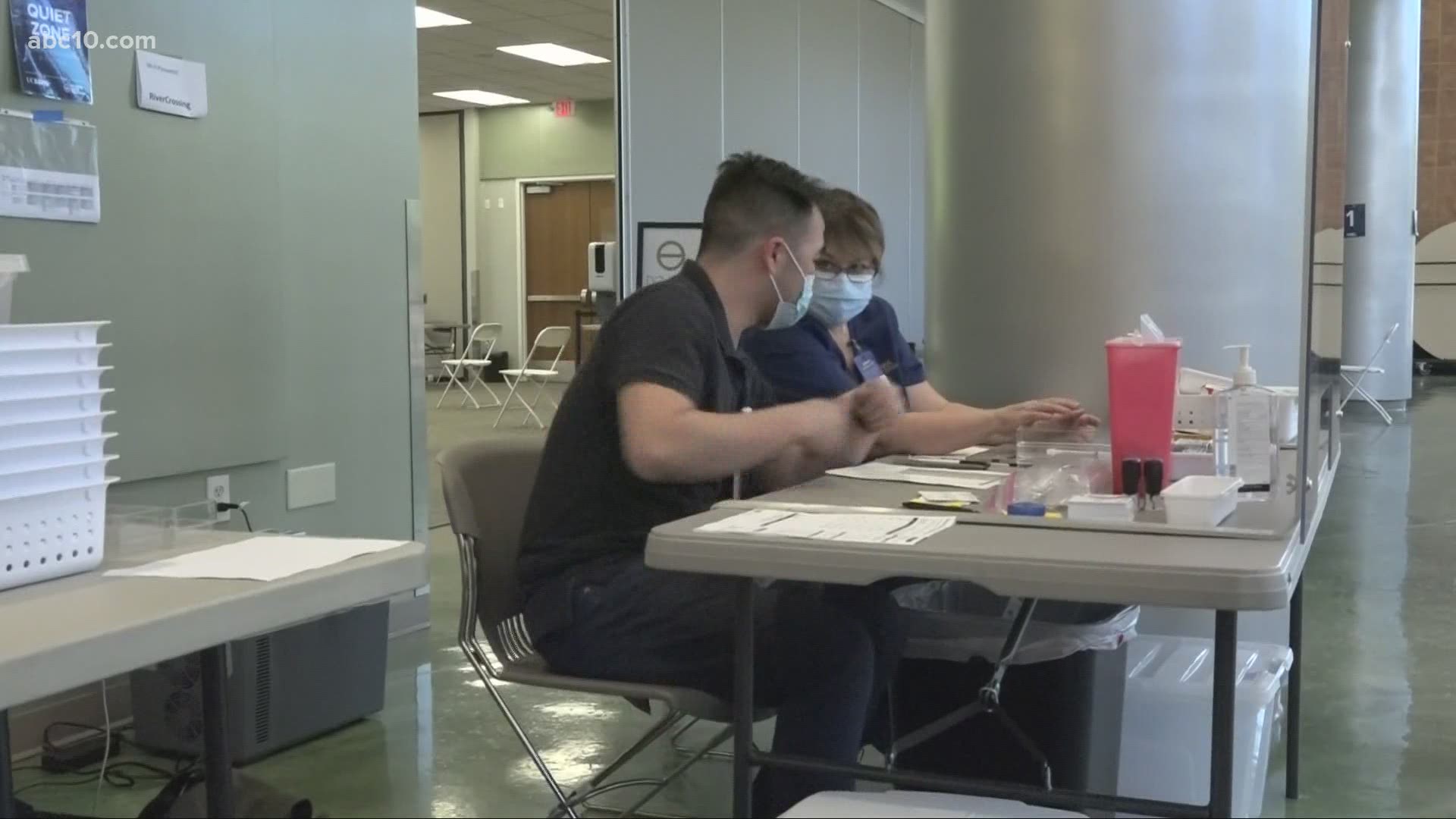WEST SACRAMENTO, Calif. — The U.S. Health and Human Services Department announced this week that community health centers across the country have hit a major milestone this week, administering 10 million coronavirus vaccines. 61% of which have gone to what they’re calling racial and ethnic minorities.
“It’s been eight years since he has been here in America,” said a translator for Lobjeed Singh, a man getting his first dose of the vaccine in West Sacramento on Thursday.
Singh was born and raised in India. Now, the father of two lives in West Sacramento and works as a truck driver.
"He said it feels very good and everything will be back to normal so he’s very proud that he got the vaccine," the translator said.
With the help of translators, Singh got his first dose of the COVID-19 vaccine at the West Sacramento City Hall Clinic on Thursday.
“He said it’s for the safety of his kids, and because he has little kids, and he also is a truck driver himself as well," he said.
The clinic is put together by CommuniCare and ‘Healthy Davis Together,’ just one of many local community-based health centers nationwide that, collectively, just hit a 10-million-dose-milestone.
“As a community health center, we see ourselves as the safety net, the home of anyone and everyone that needs healthcare and support in their lives," Lucretia Maas, the Nursing Director for CommuniCare Health Centers said.
Through their partnership, they’ve been able to administer a total of 12,000 doses in Yolo County so far this year, 45% of which have gone to the Latinx population.
“We feel grateful that we’ve had that many people show up and we are continuing to work more and getting out to the proper events and making sure that we’re reaching the population in their language, in their community and at the right time," Maas said.
They have interpreters available in three languages, two clinics open five days a week and a mobile clinic going out to meet people where they are, breaking down another barrier for those that might not have transportation.
"I think it’s even still so important that we have these vaccine clinics that have walk-ins and are accessible in neighborhoods that need the vaccine because it’s down to the trickle of people coming in slowly but they are still coming in," she said.



















